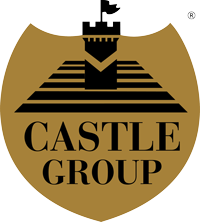Navigating the Complexities of Association Records: Insights from Association Leadership Webinar Series S6, E3
January 30, 2025

In condominium and homeowners’ association (HOA) management, keeping pace with changing legal requirements is essential. The Association Leadership (ASL) S6, E3, Navigating Association Records: Clarity, Compliance, and Community Best Practices webinar gathered experts Brian Street, Castle Group‘s Executive Vice President of Operations, Jeffrey A. Rembaum, Esq., and Alan Schwartzseid, Esq., Attorney and Board-Certified Specialists in Condominium and Planned Development Law, with Kaye Bender Rembaum, P.L. to clarify the complexities of official records management under Florida law. Their expertise provides valuable best practices for community association board members, and property managers.
Key Takeaways on Official Records Management:
The webinar began with a detailed overview of official records and the obligations associations have in maintaining and providing access to these records. As outlined, official records include:
- Governing documents (declarations, bylaws, articles of incorporation, and rules)
- Meeting minutes
- Owner rosters with mailing addresses
- Insurance policies
- Financial records, including budgets, ledgers, and reports
- Election materials and director education certificates
Distinctions Between Condominiums and HOAs
While Florida’s laws governing condominiums (Chapter 718) and HOAs (Chapter 720) share similarities, they also have distinct requirements. For instance:
- Website Requirements: Condominiums managing 150 or more units must maintain a website to host official records, with smaller associations following suit by 2026. HOAs with 100 or more lots are subject to similar rules but must also make records physically available for inspection within 45 miles or the same county.
- Record Retention Policies: Condominiums must retain structural inspection reports for 15 years and board member education certificates for seven years. HOAs, in contrast, maintain education certificates for five years or if the director remains on the board.
- Inspection Protocols: Condominium associations must provide a checklist indicating which records are available and unavailable, retaining these checklists for seven years. HOAs are not mandated to use checklists but benefit from clear policies to streamline compliance.
What Constitutes “Producible” Records?
Associations must provide access to producible records within 10 business days of an official request. Records exempt from inspection include:
- Attorney-client privileged communications and work product;
- Personal member data (e.g., Social Security numbers, email addresses not used for official notices);
- Security measures and software;
- Personnel records; and
- Information gathered during the lease or sale of units.
Addressing Compliance Challenges
The webinar also tackled common compliance pitfalls:
- Failure to Organize Records: Disorganized records hinder timely responses to requests. Condominium associations risk penalties for failing to maintain records in an accessible format.
- Inadequate Policies: Associations without clear policies on record retention and inspection are vulnerable to disputes. An adopted policy clarifies processes, preventing misunderstandings.
- Last-Minute Responses: Delaying responses to the 10-day deadline can create tension. As Jeff noted, even providing access at the “11th hour” technically complies but isn’t ideal for fostering trust.
Penalties for Non-Compliance
Failure to comply with statutory requirements carries significant consequences. Associations may face:
- Fines of $50 per day (up to $500 total) for delays in producing records
- Civil penalties for destroying accounting records
- Misdemeanor charges for failing to produce records or maintain them as required
- In severe cases, willful obstruction can lead to third-degree felony charges. These penalties highlight the importance of understanding and adhering to Florida’s laws.
Recommendations for Best Practices
To ensure compliance and enhance transparency, associations should:
- Adopt a Comprehensive Records Policy: A policy governing retention and inspection protects associations from inadvertent violations. It should specify acceptable formats, response timelines, and inspection procedures.
- Leverage Technology: Associations should consider using a secure website or portal to host records. This reduces administrative burdens and improves members’ accessibility.
- Train Board Members: Ongoing education ensures board members understand their responsibilities. Associations should schedule regular training sessions to address evolving laws and practices.
- Engage Legal Counsel: Partnering with experienced attorneys ensures associations remain compliant and prepared for legal challenges.
- Proactively Communicate: Transparency builds trust. Boards should communicate policy changes and legal requirements, emphasizing a commitment to accountability.
Official records management is a cornerstone of effective community association governance. By understanding statutory requirements, adopting proactive policies, and fostering transparency, associations can confidently navigate the complexities of compliance. A collaborative approach involving legal counsel, the right management partner, and board members is key to success. With proper planning and education, associations can transform compliance challenges into improved governance and member satisfaction opportunities.
To watch the full webinar on Navigating Association Records: Clarity, Compliance, and Community Best Practices visit https://castlegroup.com/webinar/asl-s6e3-navigating-association-records-clarity-compliance-and-community-best-practices/.
To learn more about how Castle Group can serve your community, request a proposal at https://castlegroup.com/request-a-proposal/.
Tags:

